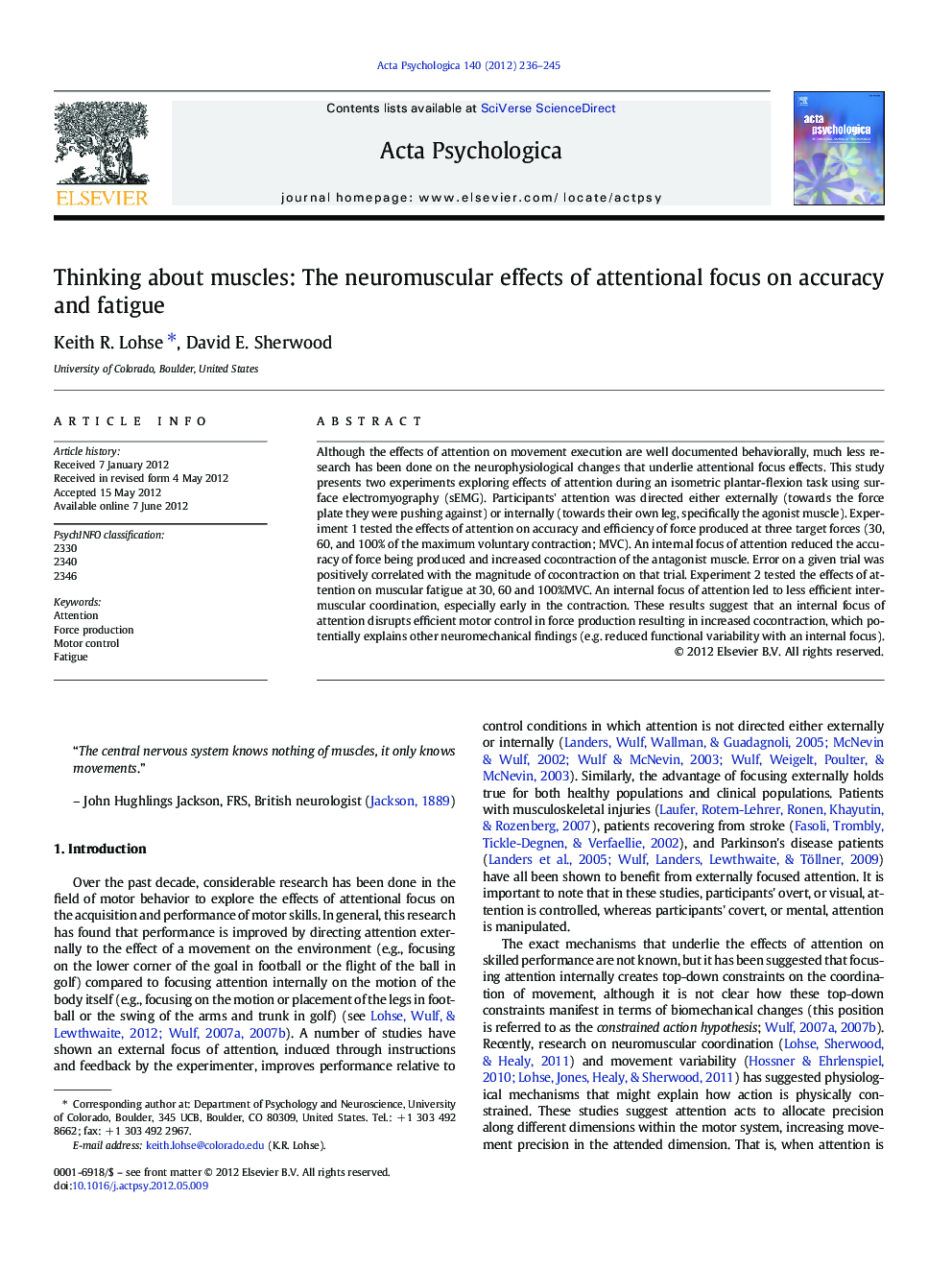| Article ID | Journal | Published Year | Pages | File Type |
|---|---|---|---|---|
| 919923 | Acta Psychologica | 2012 | 10 Pages |
Although the effects of attention on movement execution are well documented behaviorally, much less research has been done on the neurophysiological changes that underlie attentional focus effects. This study presents two experiments exploring effects of attention during an isometric plantar-flexion task using surface electromyography (sEMG). Participants' attention was directed either externally (towards the force plate they were pushing against) or internally (towards their own leg, specifically the agonist muscle). Experiment 1 tested the effects of attention on accuracy and efficiency of force produced at three target forces (30, 60, and 100% of the maximum voluntary contraction; MVC). An internal focus of attention reduced the accuracy of force being produced and increased cocontraction of the antagonist muscle. Error on a given trial was positively correlated with the magnitude of cocontraction on that trial. Experiment 2 tested the effects of attention on muscular fatigue at 30, 60 and 100%MVC. An internal focus of attention led to less efficient intermuscular coordination, especially early in the contraction. These results suggest that an internal focus of attention disrupts efficient motor control in force production resulting in increased cocontraction, which potentially explains other neuromechanical findings (e.g. reduced functional variability with an internal focus).
► This study presents data on the effects of attention in isometric force production. ► Experiments 1 and 2 explored accuracy and fatigue at different force levels. ► Focusing attention internally led to less efficient neuromuscular coordination. ► These break-downs in efficiency were worse earlier in time and at higher forces.
